Judy and I were up and refreshed after 11 hours of restful sleep – 5 1/2 for Judy and 5 1/2 for me. We were fed and in the lobby for a 7:30 AM pickup for the Gray Line tour to Macau. I’ve resolved to avoid the detailed and, I fear, boring recitation of the mechanics and travails of our trip. Instead I’ll try to focus on some observations of Hong Kong so far.
I’m writing this on my iPhone as we travel by high speed catamaran from Hong Kong to Macau. Unless noted later on you can assume today’s trip was:
- 7:30 AM pickup (7:50 actual)
- 9:45 castoff at 9:45
- 10:45 AM arrival (40 miles at 40 mph)
- Touring and whatnot with a guide
- 5.35 PM return ferry to HK
- 7:00 PM back at hotel
- 7:30 PM Dim Dim Sum
- 8:30 Blog posting
- 9:30 bedtime
Piece of cake!
So far Hong Kong seems like a real Apple-a-day kind of place: healthy, wealthy and wise. Wages here are said to be three times the mainland China average. Financial services and a robust retail segment dominate the economy. The question is, how long will this state of bliss last? What does the future hold?
Britain achieved its position in HK in the mid 1800s after two Opium wars (Britain was taking so much tea from China that it started shipping opium to China. The Chinese didn’t like the results of widespread opium addiction. Hence the wars.) The Brits won and got a 99 year lease on HK. The lease ran out in 1997. Ever since HK’s autonomy has eroded. Popular elections determine HK’s government but only candidates approved by a central committee can run for office. China’s stated goal is to achieve a “One China” status by 2047, 50 years after the give back.
What will One China mean for HK? I don’t think anyone (least of all me) knows for sure. Our guide yesterday told us that today mainland Chinese must obtain a visitor’s visa to enter HK; they can’t come to live or work. HKers enjoy free access to the mainland to visit, work or live. If the border was free in both directions the HK island would sink under the weight of the 1.4 billion mainlanders who would come for work in HK. One China must therefor assume that the income differential will be eliminated in 30 year’s time. Either mainland must grow or HK incomes must sink to achieve equilibrium. Scary if you’re an HKer.
By the way, I figured out the crowds we experienced in the department store yesterday. November 11 is an annual Singles Day (11/11 = singles. Get it?) promotion started in 2008 by the online retailer alibaba.com, China’s answer to amazon.com. The event has apparently spilled over to brick-and mortar retail, hence the crowds. Do we have this at home? I’m clueless, as my kids and grandkids will attest. Check out http://www.scmp.com/tech/enterprises/article/2119483/alibaba-smashes-singles-day-record-online-shopping-festival-goes for the details.
According to the South China Morning Post newspaper, Alibaba claims single-day sales of more than $US 25 billion on 11/11, up from $18 billion last year and more than three times the U.S. on-line sales for Black Friday and Cyber Monday combined last year ($US 6.7 billion). Consumer spending accounts for 40% of China’s GDP compared to 70% in the US. China has 300 million middle class consumers, almost equal to the entire population of the US, and has another 1.1 billion people aspiring to reach middle class status. One thing’s for sure: China has size on its side. China’s long-term success in growing its economy is certainly questionable. But we’d better be sure we get our economic and international policies right. We face a formidable competitor on the world stage.
What about Macau? The Portuguese established their claim in the 16th century and gave it back to China in 1999, two years after the Brits gave back HK. Like HK, it’s a Special Administrative Region with its own border, currency, etc. The big deal in Macau is that it’s the only place in all of China where gambling is legal. Today it has a whole bunch of Vegas-style casinos (didn’t get the count), many from the US: MGM, Sands, etc. We’re told that Macau’s gambling take is six times that of Vegas. The message again: China has bigness going for it.
We visited the remains of a Portuguese Catholic church, built in 1602 and burned down in 1850 or so by Portuguese soldiers who were using it as a barracks after the Jesuits had been expelled. Only the front facade and entryway remain. See the pix.
We visited a small Taoist temple adjacent to the church, the Portuguese fort, the Sky Tower (293 meters; we didn’t pay to go up – too cloudy nor did we bungee jump), a Buddhist temple (Buddhism was the official religion of Macau) and finally the Sands casino.
My overall impression is that Macau, a relatively small city by Chinese standards (only 600,000 people), is not as prosperous and well developed as Hong Kong. The casinos are grand but the surrounding neighborhoods don’t have the steel and glass patina that we see all over the place here in HK. Quite a bit of the architecture reminds me of Soviet-era poured concrete structures totally lacking in style. It’s a bit like Atlantic City but not as extreme. But the one day bus tour impression is that the wealth from gambling isn’t as widely shared in Macau as the wealth generated by financial services and retail in HK.
All went according to plan. The bus tour was, well, a bus tour and Macau’s cultural sites are interesting but not earth shaking. But at least now we have bragging rights: yes, we’ve been to Macau and we beat the odds by leaving with as much money as we had upon entering. Most gamblers can’t make that claim.
Oh yes, it rained steadily all day long. What else is new?
Tomorrow most of the day in Hong Kong and then at 9:50 PM we’re off to Yangon, Myanmar.


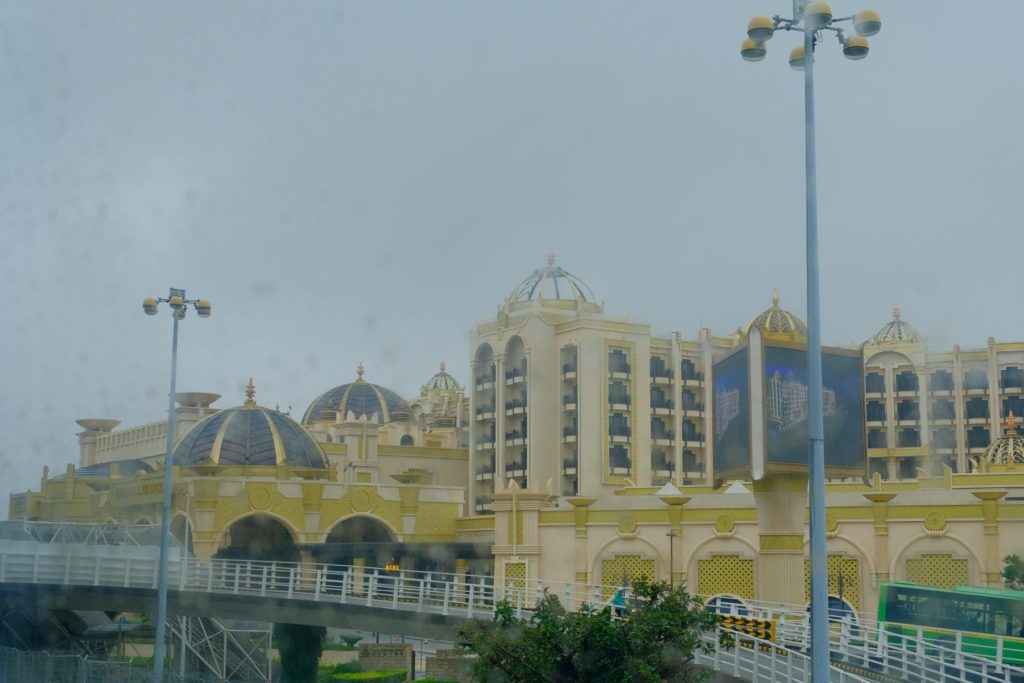
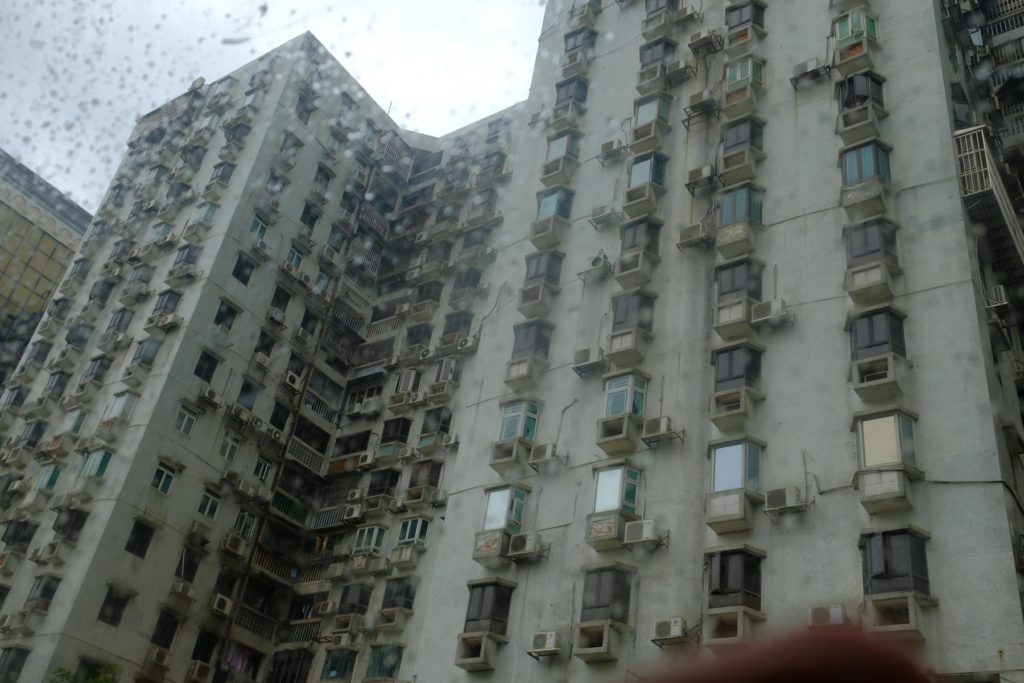
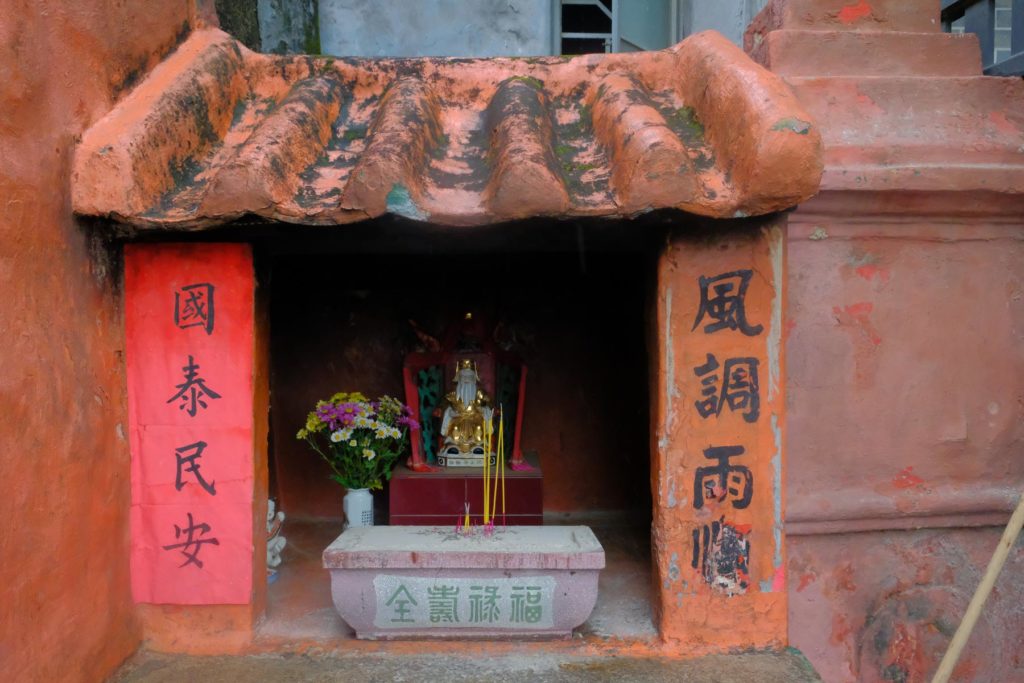

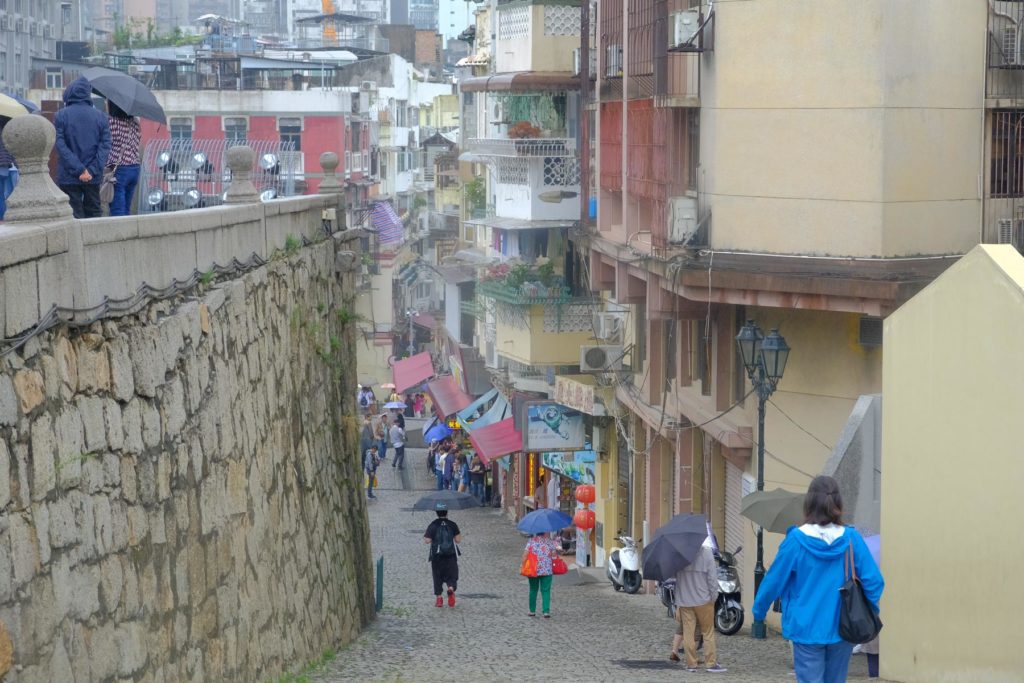
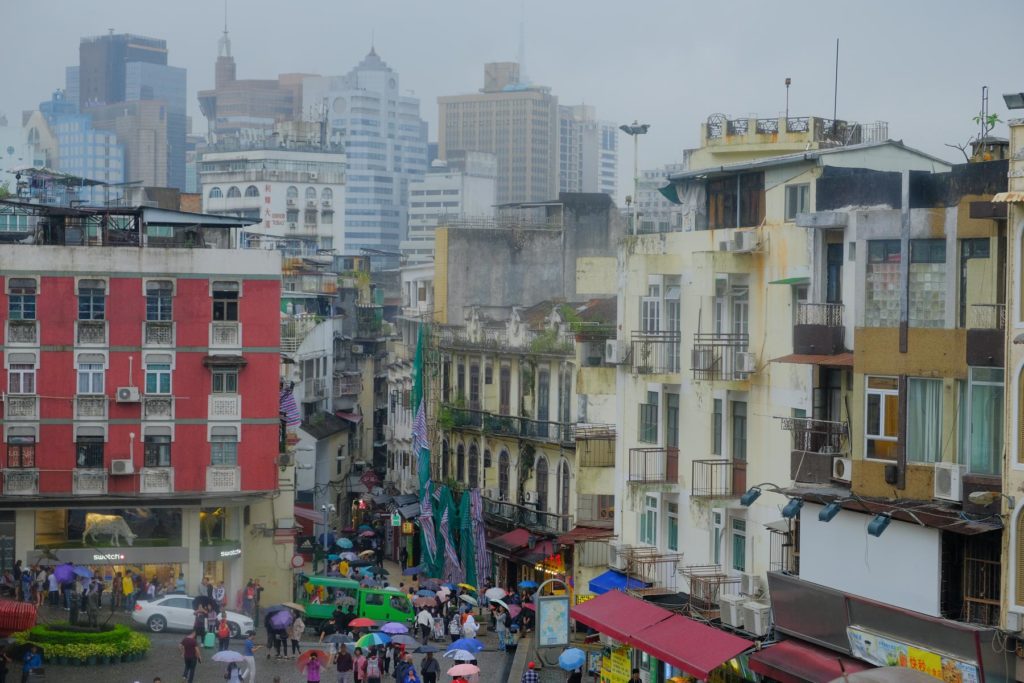


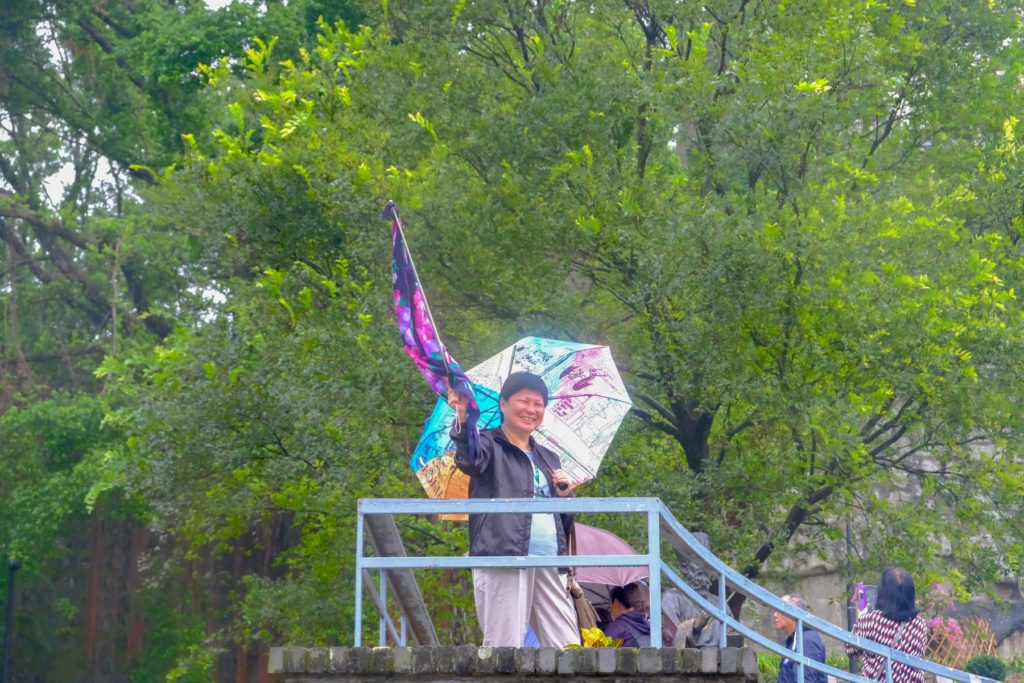

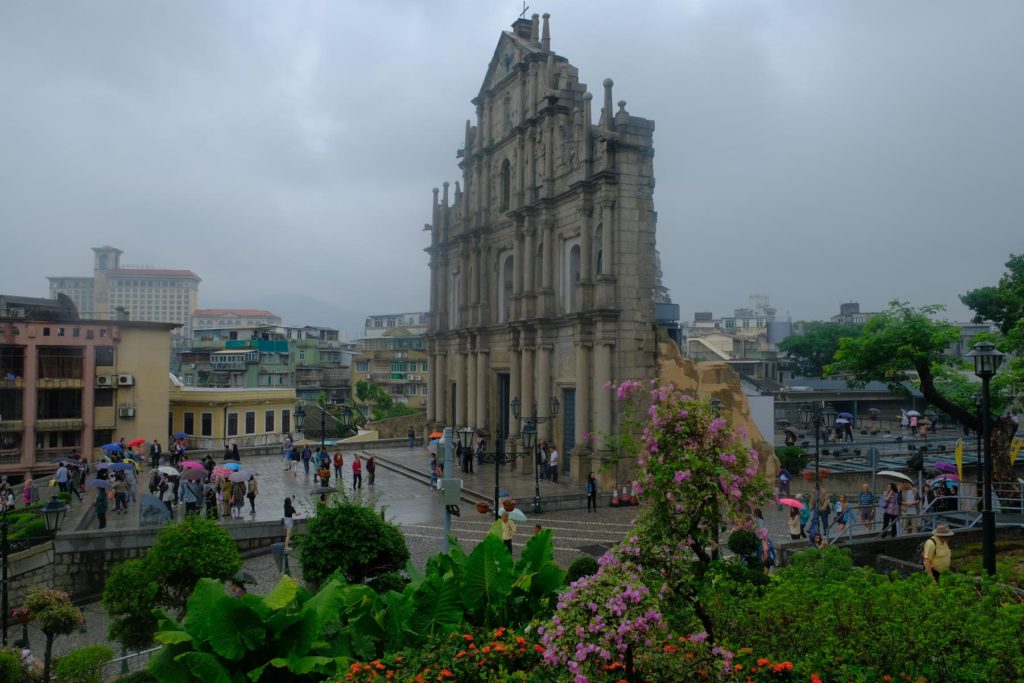

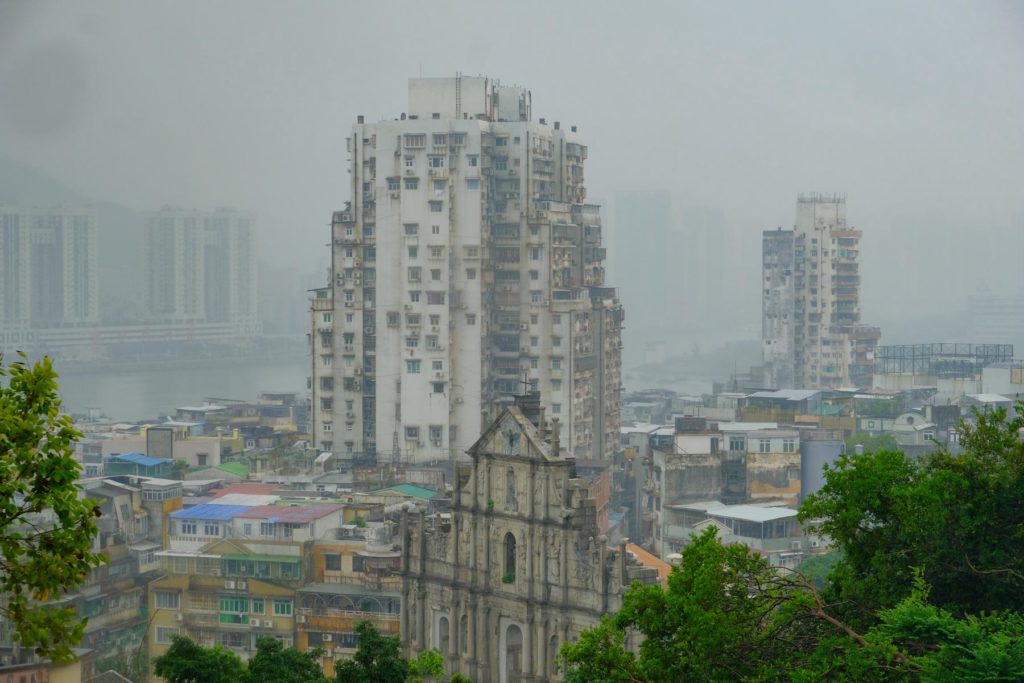

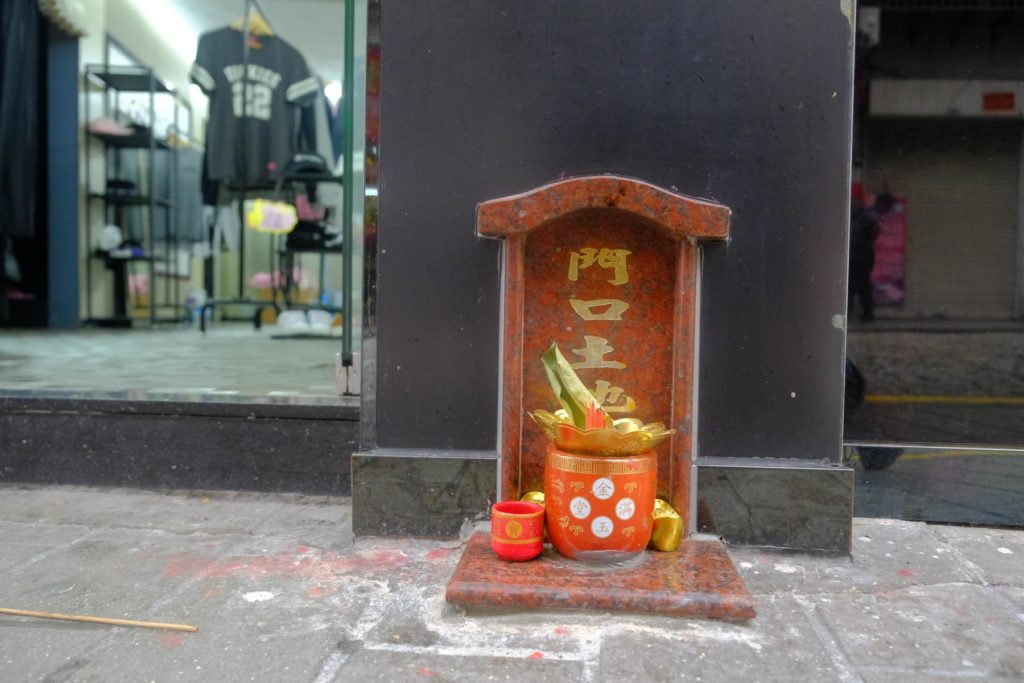

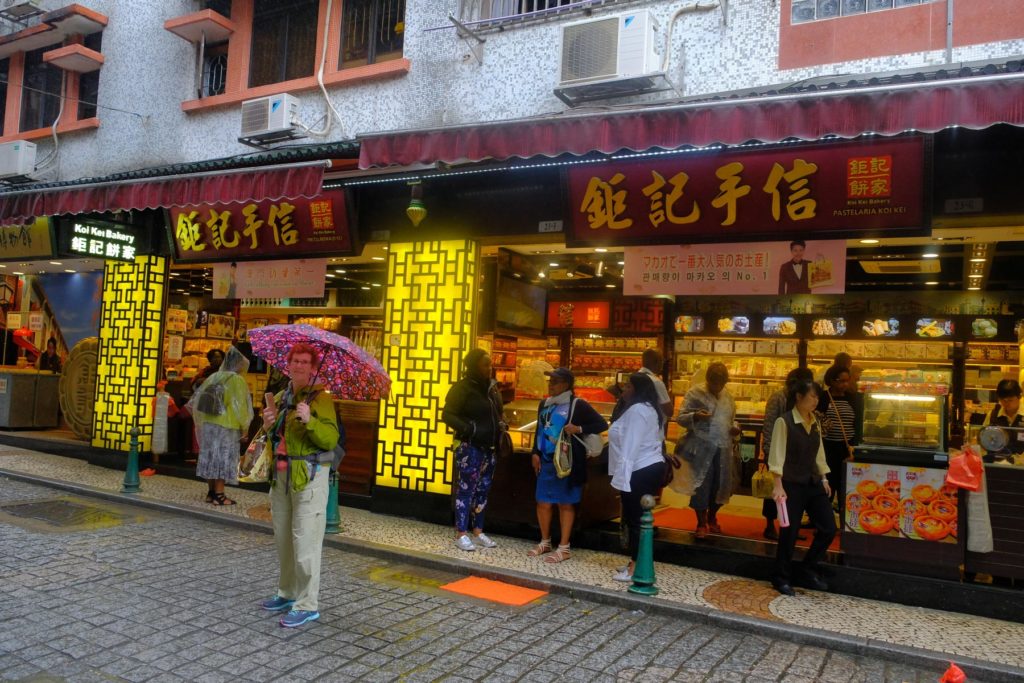
Hong Kong is a lovely, clean, safe city. I have felt very comfortable everywhere I have been. The buildings are very tall. I have never seen such high buildings anywhere but it all makes sense. There are so many people and so little land so there is nothing to do but build up and so they do! The buildings are also beautiful and the architecture is so interesting. As you would expect the city is very busy with lots of people but it also appears to be organized and people move around smoothly. The people are very helpful as we found when we did not know where to go and they would come over and say “do you need some help?” It has made me more conscious that I should be more aware and ask people if they need help when I get back home. The people also are polite and follow the rules as they usually wait for the crosswalk signs.
As always I will give you the report on the Lady’s Toilets. They have been very clean and very much like in the US. They have had western toilets, toilet paper, soap, and towels just like the US. When we first got here I asked where the toilet was and then asked Jon for money. The person overheard that and said, “In Hong Kong we do not do that.” He was very proud of the fact.
It just occurred to me that we have not seen the sun since we arrived. It has been cloudy and two days it rained but in spite of it we have really enjoyed our visit to the wonderful city of Hong Kong.
Judy